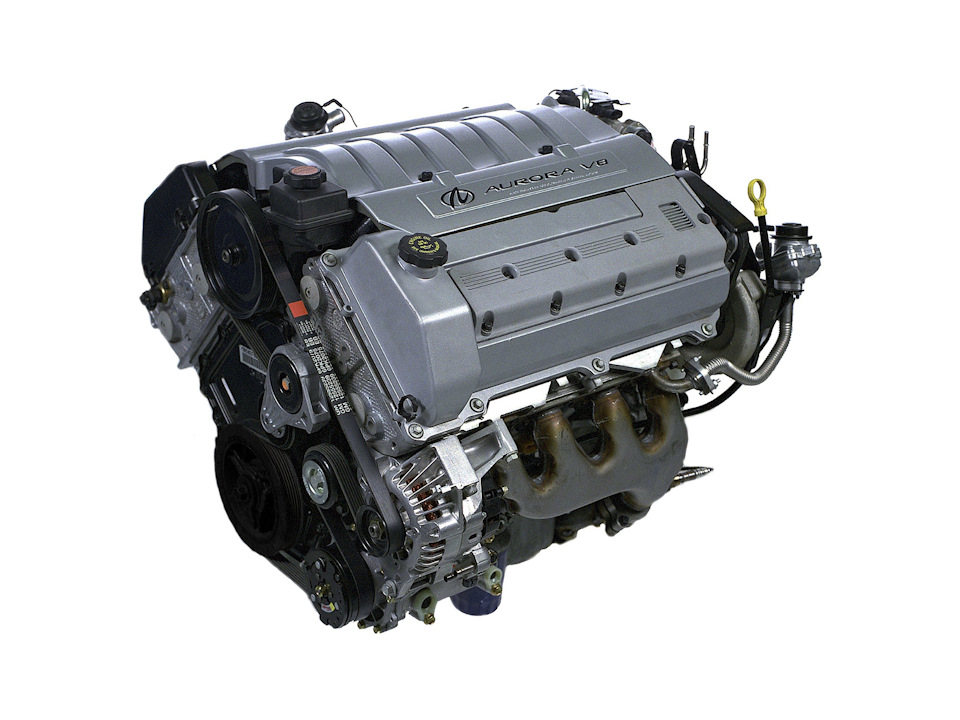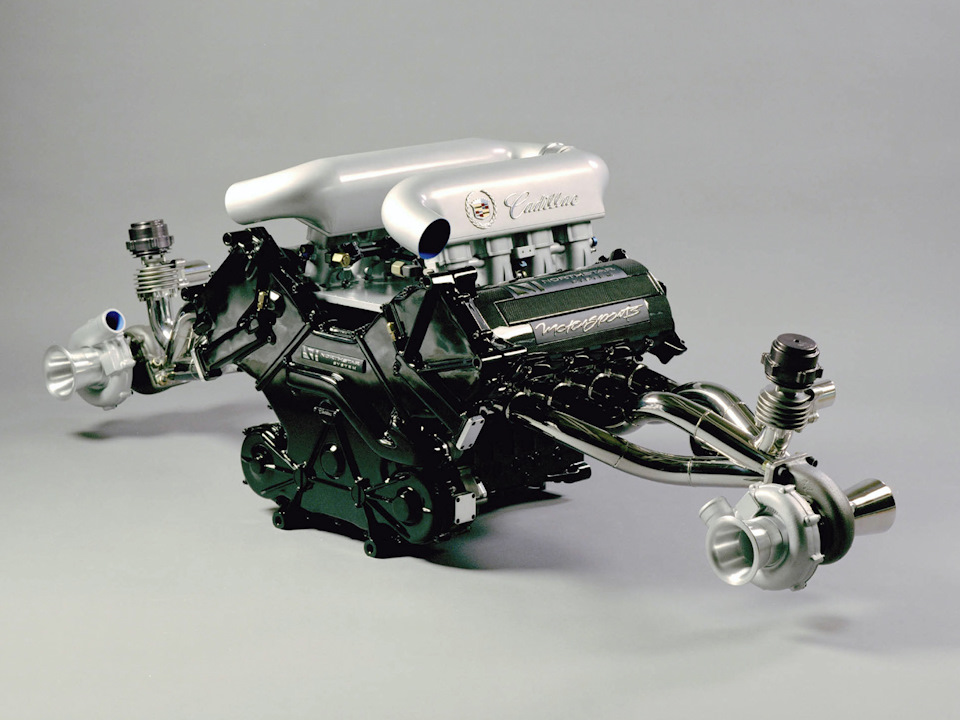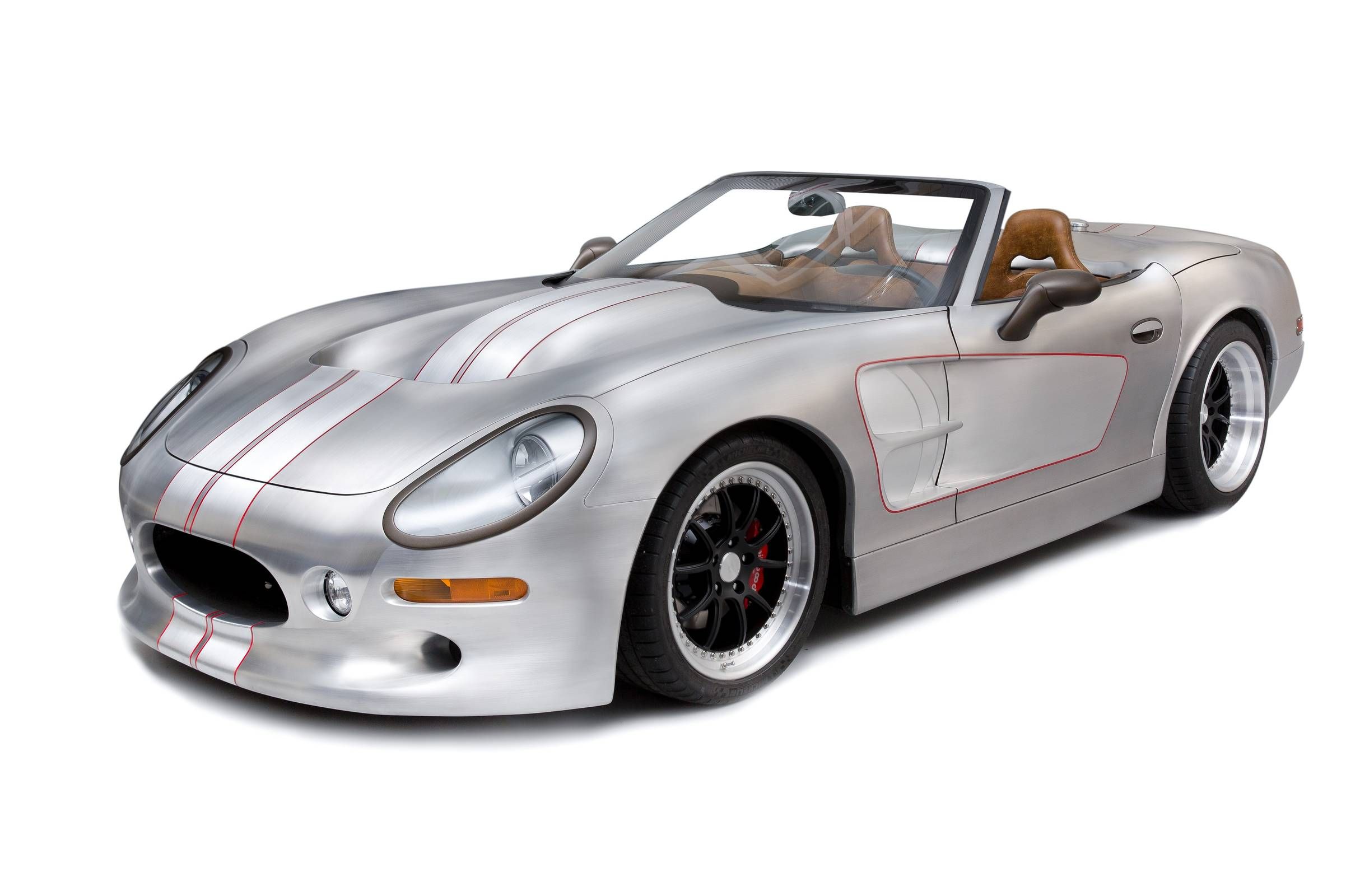
Some engines–like the LS V8 and the Honda K-Series–seem to get all the love because of their strong aftermarket support and their availability in the salvage yards.
But when it comes to engines that are said to be finicky, hard to modify or even unreliable, is all the bad press really true, or are there a few diamonds in the …
Read the rest of the story
Is this a thinly-veiled attempt to discover ideas for uncommon engine swaps? Perhaps.
Colin Wood said:
Is this a thinly-veiled attempt to discover ideas for uncommon engine swaps? Perhaps.
Either way, I approve. Paddle on, Colin
Pretty much any diesel gets a rep worse than it actually is. That's good for me because it keeps them from being more expensive than they already are.

wae
PowerDork
11/11/22 11:32 a.m.
Curtis73 (Forum Supporter) said:
Pretty much any diesel gets a rep worse than it actually is. That's good for me because it keeps them from being more expensive than they already are.
I will fight to the death to keep the OM642's reputation as low as possible.
Maybe it's only because mine have been the 2v versions, but I hear a lot of dissatisfaction with the Triton motors. They've been awesome for me, though.

Mr_Asa
UltimaDork
11/11/22 11:37 a.m.
200-250ci Ford I6
Braze/TIG some injector bungs on the integral intake, throw boost at it, grin.
Iron Duke. Horribly slow, yes, but reliable.

I've always wondered about the Oldmobile Aurora 4.0L V8. Apparently it was used as a basis for an Indy Car engine or something? Related to the Northstar?
Off to google.
EDIT: Wiki sez
The Aurora came standard with Oldsmobile's 4.0 L (244 cu in) L47 V8 engine, a DOHC engine based on Cadillac's 4.6 L Northstar V8. The Northstar engine and 4T80-E had been exclusive to Cadillac prior to the Aurora. The L47 put out 250 hp (186 kW) at 5600 rpm and 260 lb⋅ft (353 N⋅m) torque at 4400 rpm.[7] The Aurora used a four-speed automatic transmission with driver selectable "normal" and "power" shift modes. A highly modified 650 hp (485 kW) version of this engine was used by General Motors racing division initially for Indy Racing League and IMSA competition starting in 1995 with the GM-supported Aurora GTS-1 racing program, then was later used in the Cadillac Northstar LMP program in 2000. Both engines retained the 4.0 L capacity, but the Northstar LMP version was twin-turbocharged.[8]


Apparently it was also used in the Shelby Series 1 car.

I'm assuming it's not easy to adapt to RWD or something. Also plenty of engines that are great in factory form, but lack aftermarket support or require lots of parts to be turned up much which kills it's popularity before it can get started. If you have an engine that makes 250hp stock, and has the head flow and bottom end to support 600hp but the bean counters gave it pencil thin rods then it's not going to become huge. Or even just saddling the engines with a non-enthusiast platform to begin with. Like the Nelsons and the Atlas engines, overlooked because of it's size/oil pan and Trailblazer surroundings, among others.
The Porsche M96. Do the IMS once and actually ring it out and it will last forever. Same thing with Mazda rotaries, if you actually drive it like it's meant to they last. If you let it sit all the time and baby it, they break.
Moral of the story is buy high mileage sports cars.
I'm attempting to swap a mildly popular FWD motor into a RWD platform.
Honda L15B7 into a Spitfire/GT6.
Light, compact, powerful, plentiful, and loads of aftermarket stuff to X2 the stock HP.
Not really a 'Horrible Engine' when used in Civics and such, but as a RWD swap candidate, has drawbacks.
No RWD transmission, the closest I found was a bellhousing used to convert to a
propeller belt drive for use on light aircraft, which even if I found one, would still need
an adaptor to the transmission itself.
And what to do about standalone engine management?
But I figured out how to fit a Getrag gearbox from a BMW 323i with an adaptor ring.
And there are Hondata boxes that can run the motor standalone, as in the aero application.
See this link: Viking 195 Turbo Engine — Viking & Valkyrie Power (vikingaircraftengines.com)
I'll admit to have been eying the Toyota GR16 3 cylinder motor, but good luck finding one of those.
(bring the BIG wallet)
In reply to Javelin :
If what we learned from our Porsche Boxster S project car, fixing the IMS issue isn't nearly as scary as many would make it out to be.
Failure to respect timing belt/chain maintenance intervals has resulted in a bad reputation for many overhead cam engines. On the chain driven varieties over extended or forgotten oil changes are often the root cause of early demise. I often wonder if this is the case with the dohc GM 2.2/2.4 engines. In the junk yards I see a lot of these that have expired due to timing chain failures.
In reply to clshore :
I always thought the L15 deserved more love, but that's mostly because my daily is a GK5 Honda Fit.
Best of luck on your project (and make sure you share it over on Builds and Project Cars if you haven't already).

NickD
MegaDork
11/11/22 12:20 p.m.
GM 2.8L/3.1L in FWD applications. Yeah, they weren't very great in RWD applications, like S-10 Blazers, but in a FWD they were a pretty rugged engine. Not powerful or thrilling, but they'd go a long time. My father's '89 Cutlass Ciera cracked off 250k miles with just a set of intake gaskets. Growing up we also had them in a '95 Cutlass Supreme and a '95 Buick Century and several Corsicas, and the engines were always hale and healthy up until the end of the cars.
The most obvious is the Atlas 4.2 Chevy Trailblaze/ GMC Envoy/Buick ? Calvin Nelson made 824 horsepower on a stock bottom end one right from the Junkyard.
Right from the Junkyard not opened up at all they handle 20 pounds of boost. ( 30 pounds sent a con rod on vacation out the side of the block) junkyard price is about $ 4-600
The Jaguar predecessor of the Atlas is very similar except the con rods and crankshaft are forged not Sintered Iron like the GM. But unlike the Atlas engine you don't have to highly modify the oil pan to get it to work in the typical FWD car.
junkyard of the Jaguar version is $2-400
Anyplace you can put an inline 6 in you can fit Jaguar's V12 in. It's a lot more narrow than a V8 or 90 degree V6. Plus the spark plugs are on top. It comes in both carb version and EFI. With and without distributor. So if you are a Luddite like me you can run one wire to the coil and not have to use anything else.
madmrak351 said:
Failure to respect timing belt/chain maintenance intervals has resulted in a bad reputation for many overhead cam engines. On the chain driven varieties over extended or forgotten oil changes are often the root cause of early demise. I often wonder if this is the case with the dohc GM 2.2/2.4 engines. In the junk yards I see a lot of these that have expired due to timing chain failures.
Not just OHC engines. Run low oil, fail to change it regularly, any chain driven camshaft will prematurely fail. Chevy, Ford, etc.
NickD said:
GM 2.8L/3.1L in FWD applications. Yeah, they weren't very great in RWD applications, like S-10 Blazers, but in a FWD they were a pretty rugged engine. Not powerful or thrilling, but they'd go a long time. My father's '89 Cutlass Ciera cracked off 250k miles with just a set of intake gaskets. Growing up we also had them in a '95 Cutlass Supreme and a '95 Buick Century and several Corsicas, and the engines were always hale and healthy up until the end of the cars.
All of the 60 degree v6 engines.
The later ones are not that hard to swap. They are built like a brick E36 M3house. They can make decent power with some mods. I plan to add a Chinese spooly Boi on the one in my rx8.
frenchyd said:
The Jaguar predecessor of the Atlas
False. Source required for a BS claim like that.
Also, no one says the 4.2 is a "horrible engine". Trailblazers/Enovys have a pretty decent reputation, other than typical 2000's GM plastics and the 4l60e.

NickD
MegaDork
11/11/22 12:38 p.m.
maschinenbau said:
frenchyd said:
The Jaguar predecessor of the Atlas
False. Source required for a BS claim like that.
Also, no one says the 4.2 is a "horrible engine". Trailblazers/Enovys have a pretty decent reputation, other than typical 2000's GM plastics and the 4l60e.
The Atlas does kind of suck to work on, but a lot of that is a result of being in the Trailblazer/Envoy. Those are a E36 M3box of a vehicle, but it's not really the engine's fault, it's every other aspect of the platform. Ever changed a steering gear in one of those? Yikes. Or the front axle through the oil pan.
wvumtnbkr said:
NickD said:
GM 2.8L/3.1L in FWD applications. Yeah, they weren't very great in RWD applications, like S-10 Blazers, but in a FWD they were a pretty rugged engine. Not powerful or thrilling, but they'd go a long time. My father's '89 Cutlass Ciera cracked off 250k miles with just a set of intake gaskets. Growing up we also had them in a '95 Cutlass Supreme and a '95 Buick Century and several Corsicas, and the engines were always hale and healthy up until the end of the cars.
All of the 60 degree v6 engines.
The later ones are not that hard to swap. They are built like a brick E36 M3house. They can make decent power with some mods. I plan to add a Chinese spooly Boi on the one in my rx8.
+1. Ours ran like a train in Lemons. The canted-valve heads are cool. They just don't sound good.

Mr_Asa
UltimaDork
11/11/22 12:48 p.m.
frenchyd said:
maschinenbau said:
frenchyd said:
The Jaguar predecessor of the Atlas
False. Source required for a BS claim like that.
Also, no one says the 4.2 is a "horrible engine". Trailblazers/Enovys have a pretty decent reputation, other than typical 2000's GM plastics and the 4l60e.
Check your Wikipedia. Atlas came out in 2002. Jaguar came out in 1980's ( 88 I think) About the time GM was doing due diligence on buying Jaguar. However they were beat out by Ford who already had an aluminum in line 6 with 4 valves per cylinder
Who said the Atlas 4.2 was Horrible? I owned an early one And loved it. If you read what I wrote I also mentioned the Nelson's getting 824 horsepower from a junkyard one with 165,000 miles on it.
Your argument is the same as saying that I was named after someone born before me, just because my parents knew that person. There is no evidence that those two things are linked.
Stop putting out your opinions as fact and you'll stop getting a lot of vitriol.
In reply to frenchyd :
Agreed. However the longer the chain length the sooner the problem seems to manifest itself .
LT1. Optispark failures are wildly overblown. I got 192,000 out of one without cracking the seal. Still running when I junked the car. Overshadowed by the original mouse motor and the LSx engines.
In reply to frenchyd :
Quit cluttering another good thread with your oral diarrhea. Just about everyone on this forum knows what the Nelson's have done with the Atlas platform because we either follow their builds or we've seen you E36 M3post that tidbit of information in every single engine thread in the last 6 months.











































